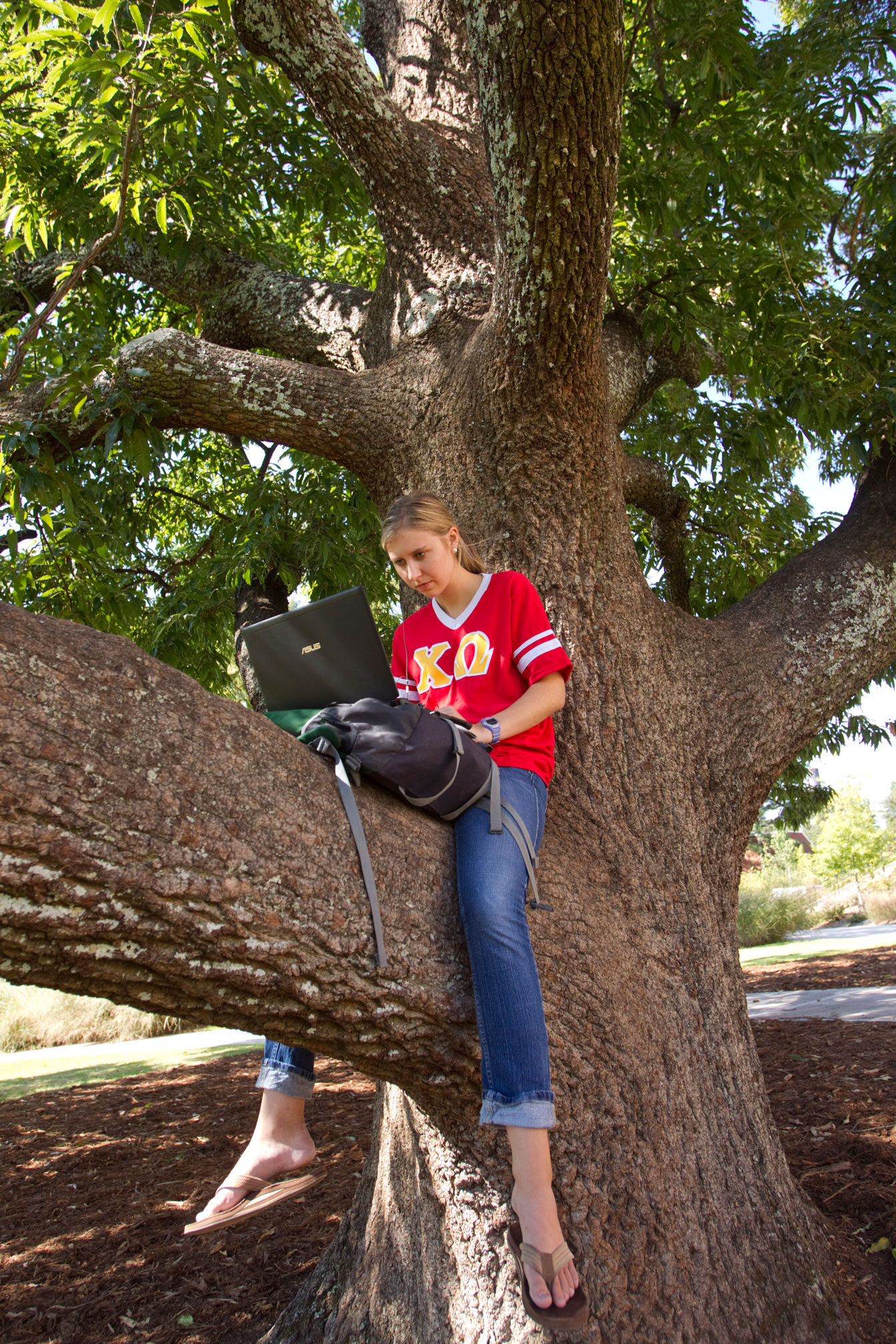Athens, Ga. – From the towering old oaks on North Campus to new maples gracing the landscape to the south, the University of Georgia’s acreage is teeming with trees. Because of the university’s continued commitment to maintaining and adding new foliage, the Arbor Day Foundation has named UGA a Tree Campus USA for the third year in a row.
UGA has more than 9,000 trees on campus, according to an ongoing tree-mapping project being conducted by the University Grounds Department. The number will continue to grow due to a partnership between Select Sustainable Tree Trust and UGA.
“I am very pleased to receive the Tree Campus recognition yet again and congratulate Dexter Adams and his staff for the very good work they do,” said UGA President Michael F. Adams. “One of the things about which I am most proud is the greening of the UGA campus during the past 16 years, and the tree canopy here is an important part of that process. We are all privileged to spend time on one of America’s most beautiful campuses.”
Dexter Adams and his staff maintain the grounds on UGA’s campus as a part of the Facilities Management department.
Some UGA professors are incorporating campus tree tours into their classes—and the plants are definitely more than a lecture slide for associate professor of horticulture Tim Smalley.
“Large trees set the stage for the important tenets of the university as a place of peace to settle the soul, a place of power to stir the soul and a soul-searching place to engender respect for the past and to promote caring for people and communities,” he said.
“To paraphrase a common quote about the beauty of specific neighborhoods, I think it is appropriate to say that when people visit the university and say ‘Oh! What a beautiful campus,’ they are really saying ‘Oh! What beautiful trees.’”
Tree Campus USA, a national program created in 2008, honors colleges and universities for effective campus forest management and for engaging staff and students in conservation goals. The Arbor Day Foundation and Toyota have helped campuses throughout the country plant hundreds of thousands of trees; and, in 2012, Tree Campus USA institutions invested $23 million in campus forest management.
UGA received the designation of 2012 Tree Campus USA by meeting five standards-maintaining a tree advisory committee, a campus tree-care plan, dedicated annual expenditures toward trees, an Arbor Day observance and student service-learning projects.
“Participating in Tree Campus USA sets a fine example for other colleges and universities while helping to create a healthier planet for all of us,” said John Rosenow, founder and chief executive of the Arbor Day Foundation.
For more information on the Tree Campus USA program, see www.arborday.org/TreeCampusUSA.
The main trees on UGA’s campus are mapped for easy identification with the help of the UGA Campus Arboretum Walking Tour of Trees. The campus walking maps were designed by the horticulture department in the College of Agricultural and Environmental Sciences. For more information, see http://www.hort.uga.edu/research/arboretum/.


